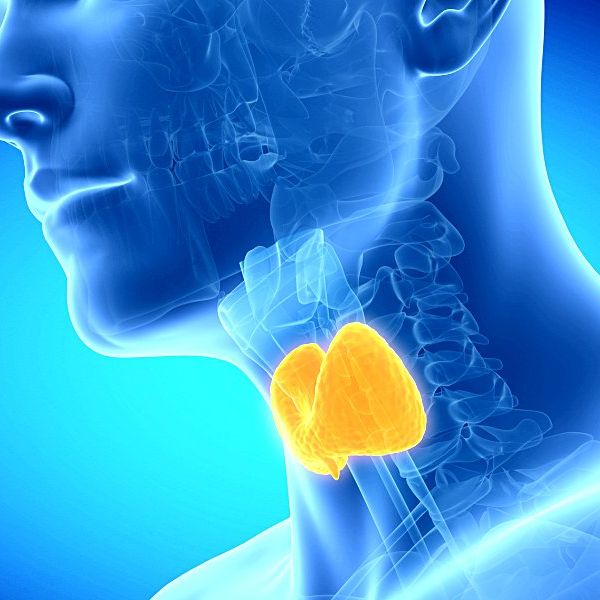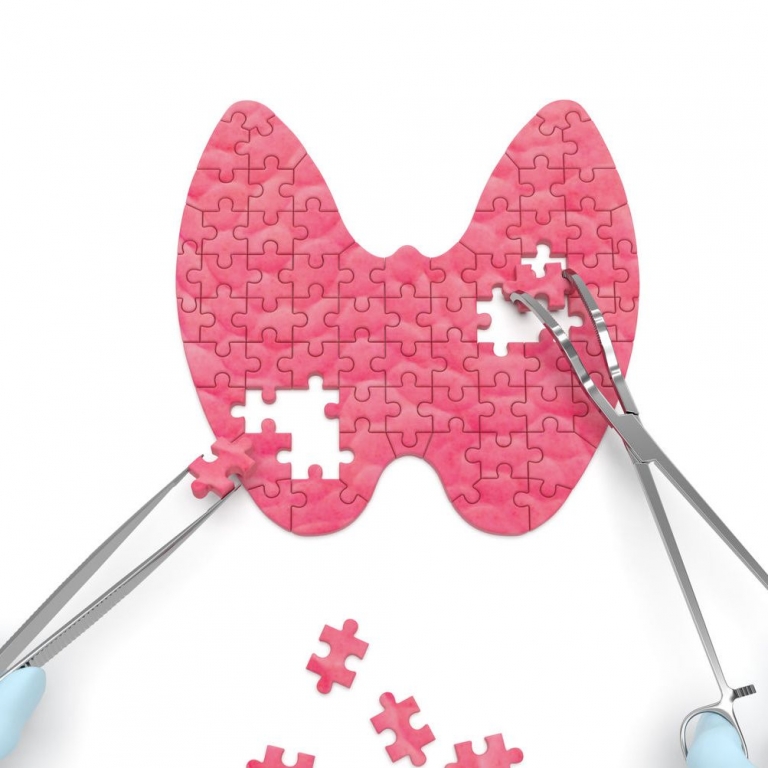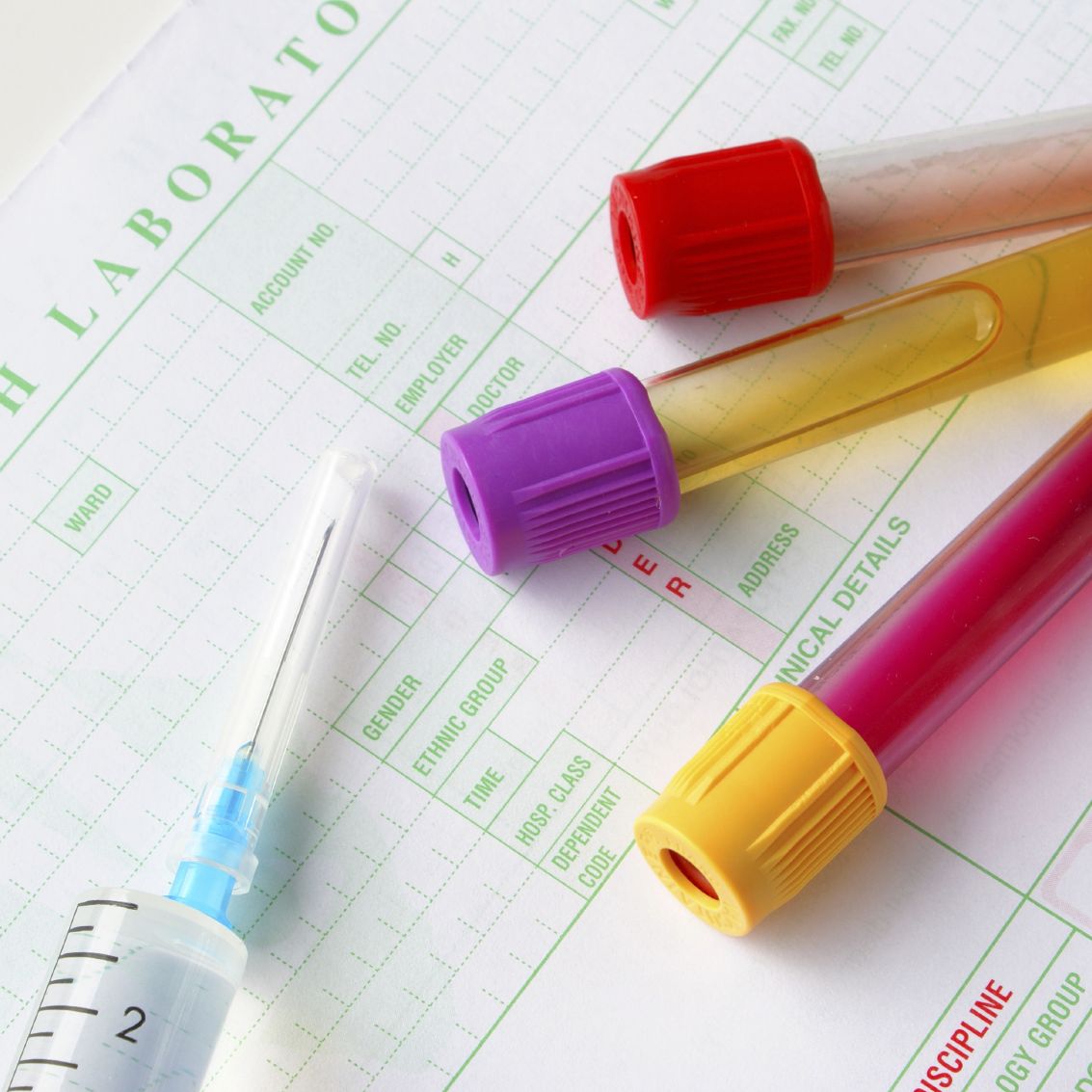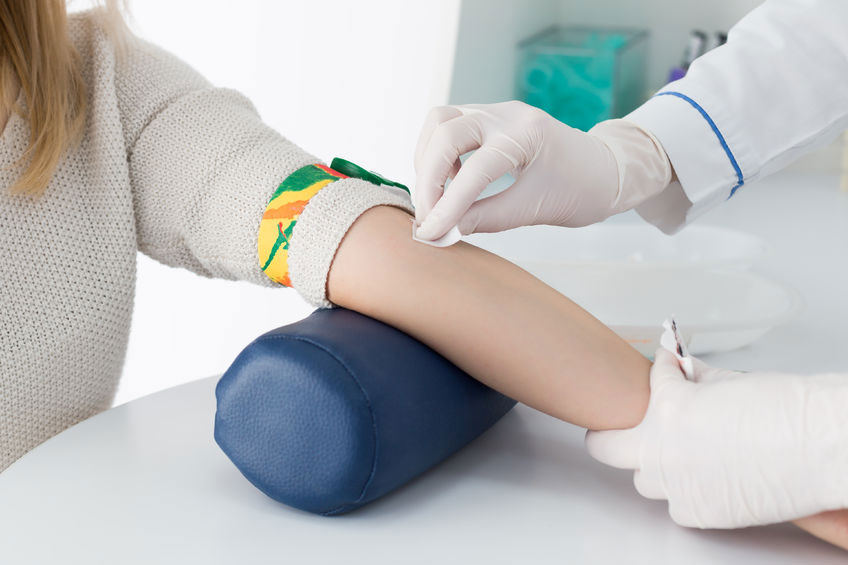Thyroid laboratory test, thyroid function test package
The laboratory package can be used to detect thyroid dysfunction (hypothyroidism or hyperthyroidism). The package also includes the measurement of thyroid hormones (TSH, FT3, FT4) from blood, and the testing of asymptomatic thyroid-specific antibodies.
In addition to the tests mentioned above, the Thyroid Premium Laboratory Package also includes the assay of iodine and selenium levels in the body.
The functioning of the thyroid
The thyroid gland is our endocrine gland located in front of the trachea, on the thyroid cartilage. The hormone it produces is responsible for the proper functioning of the body’s metabolic processes, and growth. It plays a role in both sexual function and brain function. Hypothyroidism may be the cause of obesity, while hyperthyroidism may explain weight loss.
Laboratory test evaluation
It is important to know that in most cases, the reference range refers to the laboratory where the thyroid laboratory test was performed. Different laboratories use different equipment and measurement procedures. This means that each laboratory must define its own reference range and evaluate your results in accordance with it.
The reference value depends on a number of factors (the patient’s age, gender, the population from which the sample was taken, the test method), so always consult your doctor about evaluating the results.
TSH (thyroid stimulating hormone)
A protein that is produced by the pituitary gland, not the thyroid gland, and is needed for the thyroid gland to function properly. If the value of TSH is increased, the function of the thyroid gland is usually decreased, if the value of TSH is significantly reduced, we can often talk about increased function of the organ.
What could be behind the low value?
- Due to increased thyroid function (hyperthyroidism), high T4 and T3 levels inhibit pituitary TSH production, resulting in low TSH levels.
- In case of thyroidectomy or known hyperthyroidism, overdose of drug therapy and high doses of hormone preparations also reduce the TSH value measured in the blood.
- In rare cases, TSH is not produced due to damage to the pituitary gland.
- Decreased TSH levels can also be seen during pregnancy.
What can be behind the high value?
- Elevated TSH levels are most commonly associated with hypothyroidism.
- High TSH levels can be caused by acute or chronic inflammation of the thyroid gland.
- Surgical removal of the thyroid gland (removal involves a decrease or cessation of the production of thyroid hormones).
- During drug treatment of a thyroid patient (thyroid hormone replacement): a lower dose of the drug than necessary.


FT3 (triiodothyronine) and FT4 (thyroxine)
Hormones produced by the thyroid gland. Most of them (99.7%) are protein bound (T3 and T4) and a small percentage circulate in free form (FT3 and FT4). The test helps determine if the thyroid gland is working properly. The test is primarily used to diagnose hyperthyroidism and to monitor the condition of a known thyroid patient.
High levels of FT3 and FT4 hormones
If the thyroid gland produces too much T4 or T3 hormone for some reason, the patient may produce symptoms typical of hyperthyroidism. Such symptoms are, e.g. nervousness, hand tremors, weight loss, insomnia, bulging, dry, irritable eyes.
In this case, the patient is unable to make normal eye movements, other times it may appear as if the patient’s eyes are bulging.
Low FT3 and FT4 hormone levels
If the thyroid gland produces little hormone, the patient may produce symptoms of hypothyroidism, a slowed metabolism. Such symptoms are, e.g. weight gain, dry skin, fatigue, constipation.
anti-TPO (antibody against thyroid peroxidase)
The anti-TPO enzyme is a protein that plays an important role in the synthesis of thyroid hormones, so the antibody produced against it influences the conversion of hormones into each other. Monitoring of enzyme levels is warranted in all cases where the TSH value is over the reference range, thus hypothyroidism or hyperthyroidism is suspected.
On a controlling level, it is recommended if the person develops symptoms that may indicate thyroid dysfunction. Examples are:
- menstrual disorders,
- digestive disorders (constipation, diarrhoea)
- hair loss,
- pregnancy difficulties/miscarriage,
- decreased cold or hot tolerance,
- fast pulse,
- tremor,
depression, nervousness.

What to do in case of high anti-TPO levels?
High levels of anti-TPO mean that the body produces antibodies against the thyroid gland – so it is an autoimmune process that cannot be cured, but the disorder it causes can be treated.

anti-TG (anti-thyroglobulin antibody)
Patients with autoimmune thyroid disease often develop an anti-thyroglobulin antibody (anti-TG autoantibody). Approx. 10% of healthy bodies have low levels of anti-TG autoantibody. It occurs in high concentrations in 30-85% of patients with Graves-Basedow Disease and Hashimoto’s thyroiditis. The thyroglobulin assay is mainly used as a tumour marker to study the efficacy of thyroid cancer treatment and tumour recurrence.
What may be behind the high anti-TG levels?
Elevations in anti-thyroid peroxidase antibody levels (anti-TPO autoantibodies) are more common in Graves’ Disease and Hashimoto’s thyroiditis than elevations in anti-TG autoantibodies.
The results of a thyroid laboratory test alone are not yet sufficient to make a diagnosis. If your complaints persist, our experienced internal medicine specialists are at your disposal.
Iodine deficiency can cause hypothyroidism in the long run, in which case the thyroid gland tries to compensate for the lack of thyroid hormone required for normal functioning by enlargement (nodules, goitre).
Excessive iodine intake can cause hyperthyroidism or inflammation in addition to toxic symptoms.

Selenium
Selenium is also essential for the proper functioning of the thyroid gland and the production of thyroid hormones. Simultaneously with the formation of hormones, free radicals are formed, which the thyroid gland produces antioxidant enzymes to combat. Selenium, among other things, plays a key role in their production.
Selenium enters our bodies with food. Hungary is one of the bearing surfaces with a low selenium concentration, which is why the selenium content of foods made from local ingredients is also low. Therefore, it is recommended to pay attention to its intake. It requires special attention if the individual suffers from a chronic gastrointestinal disease (celiac disease, Crohn’s disease, ulcerative colitis) or needs dialysis, as these may contribute to the development of selenium deficiency in the body. Selenium deficiency can lead to hypothyroidism and autoimmune thyroid diseases.
However, be careful not to take excessive amounts of selenium into your body through dietary supplements, as more than necessary will cause toxic symptoms. It is suggested that the recommended daily intake be adjusted individually, with the involvement of a specialist.
Low levels of selenium in the body indicate a thyroid disorder, so we determine its level in the Thyroid Premium Laboratory Package.
How do I prepare for the test?
Having an empty stomach before a thyroid test is not required, but a thyroid hormone pill (e.g. L-thyroxine) should only be taken on the day of blood count after the test.
When is the result expected?
The test result of the Thyroid Laboratory Package is expected after the 2nd working day after the examination.
The results of the Thyroid Premium Laboratory Package will be available in our online system after the 17th working day after the examination.


